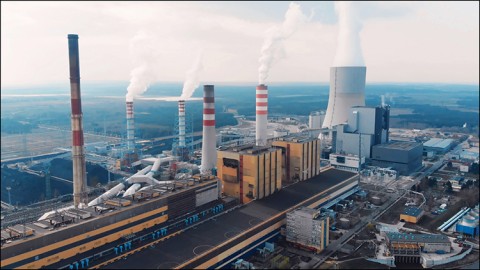Oil and gas facilities, which include oil and gas refineries, offshore production platforms, pipeline networks, and various chemical plants, are among the most complicated and dangerous industrial processes in the world. Everyone on site contributes to the operational hum of business as usual. But what happens when a disaster strikes?Can staff deal with the situation swiftly and efficiently? Can work be delegated to staff to help alleviate the situation? Can we readily communicate essential information to employees, emergency personnel, and the general public?
It’s no mystery that firms in the oil and gas industry are frequently chastised from all sides. This criticism is frequently picked up by activist groups, non-governmental organizations, or media outlets, implying that minor criticism may swiftly escalate into a big problem and a danger to a company’s reputation. As a result, it is crucial for oil and gas companies to be ready for key dialogues and crisis communication at all times. Consumers arguing about excessive gasoline or natural gas prices, environmental organizations opposing new projects, and disastrous occurrences like oil spills or other disasters are just a few of the issues that might impact their day-to-day operations.
Meanwhile, it is critical for oil and gas firms’ public relations and communications teams to watch the entire debate about their businesses, be conscious of the mood against them, and monitor the company’s reputation as well as public opinion towards the company. With all of those daily activities, as well as crisis surveillance, communication, and management, it might be difficult to stay on top of everything without sinking.
General Overview
First of all, oil pollution and its environmental repercussions, contentious procedures such as fracking, or simply swings in crude oil prices- there are several issues that have the potential to turn into crises for corporations in the petroleum sector. It is critical for crisis tracking and management to stay current on talks regarding these subjects and to respond as early as possible to avoid long-term harm to brand reputation.
The number of potential catastrophes and situations that might interrupt, disturb, or stress production is growing. If handled correctly, not many of these incidents will be crucial or constitute a crisis; however, those that lead to huge losses or increase demand on the company will have severe repercussions for the company, its stakeholders, the country, and the prestige of all those affected. These difficulties, as well as a general lack of awareness of the investment necessary to be crisis equipped, can all have an influence on emergency preparedness.
The Importance of Preventative Crisis Management
Structure, skillset, and mentality are required for a really successful crisis management team and functional crisis preparedness system. This is the foundation of the team’s crisis performance framework. It may utilise the performance framework to help an organisation based on its needs and level of crisis preparation maturity. Trainings and capacity building programs would be beneficial, even if they take place locally or internationally, either in-person or remotely. Organizations must provide tailored and integrated crisis preparedness solutions, such as crisis management training, crisis preparation, crisis response drills and scenarios, crisis leadership, and role-specific mentoring.
The preventative crisis management plan puts emphasis on maintaining output, particularly gas production, for as long as is practically possible while providing industry and government time to address the issues. It should not go into depth about potential crises that might affect oil and gas output, nor does it go into detail about the implications. The main concepts will apply to any event, and the processes will be implemented appropriately.
The importance of crisis management planning is comparable to the importance of crisis management. And, like crisis management, crisis management planning assists you in improving employee well-being and public health. If you were sitting on a stockpile of dangerous materials, for example, it would be imprudent not to plan for an inadvertent leak or pollution. An industry expert, who preferred anonymity, indicates that “crisis management is a growing topic in [our] industry. It is our responsibility to make sure that all staff are trained to make sure they know what to do in the case of an emergency, especially because emergencies in this field could escalate if we don’t act quickly and correctly.” She also added that, “communication strategies are the core part of any emergency and could make a big difference between a success and a failure response.”
Another important point to consider is that a crisis might potentially be illegal. In other words, another benefit of crisis management preparedness is that it may assist organizations in mitigating any legal liability in the event of a crisis, both to the organization and to key stakeholders. Regulators frequently require planning for particular firms and sectors. As a result, failing to plan ahead of time exposes you to the risk of fines and penalties.
Furthermore, it is not unusual for a crisis to shut down an organization – even if only for a few hours. Even in those few hours, though, money is lost. Without appropriate planning, a few hours may turn into days, if not weeks. Effective planning may save downtime, increasing output and productivity. This is a well-known successful phenomenon identified as Shutdown on Demand for Preventative Maintenance procedures.
Case Study
An important case study to consider is that of the Deep water Horizon disaster seven years ago. It was believed to be one of the worst disasters in history, resulting in human deaths and oil leaks that harmed the ecology. Professionals debated whether the failure of BP to assure safety and adequate crisis management was the primary cause of the tragedy. However, bP adopted the federal state’s policy to rectify the issue. It became involved in the recovery and focused on those who had been impacted directly or indirectly by the accident. The group was concerned with health, safety, and welfare. It assisted in the economic rehabilitation of businesses damaged by the oil disaster, such as tourism and fisheries. Of course, this incident was a learning process as BP considered the importance of preventative crisis management and continues to be one of the leading organizations in the industry.
Conclusion
In the oil and gas business, such terminology can include “accident” or “explosion” However, crises are not always associated with such catastrophic catastrophes; they may also be associated with a firm’s management or widespread criticism of business practises. In all of these circumstances, it is critical that PR and communications managers are notified as soon as possible so that they can develop an effective crisis communication plan that will be applied during the crisis response.








